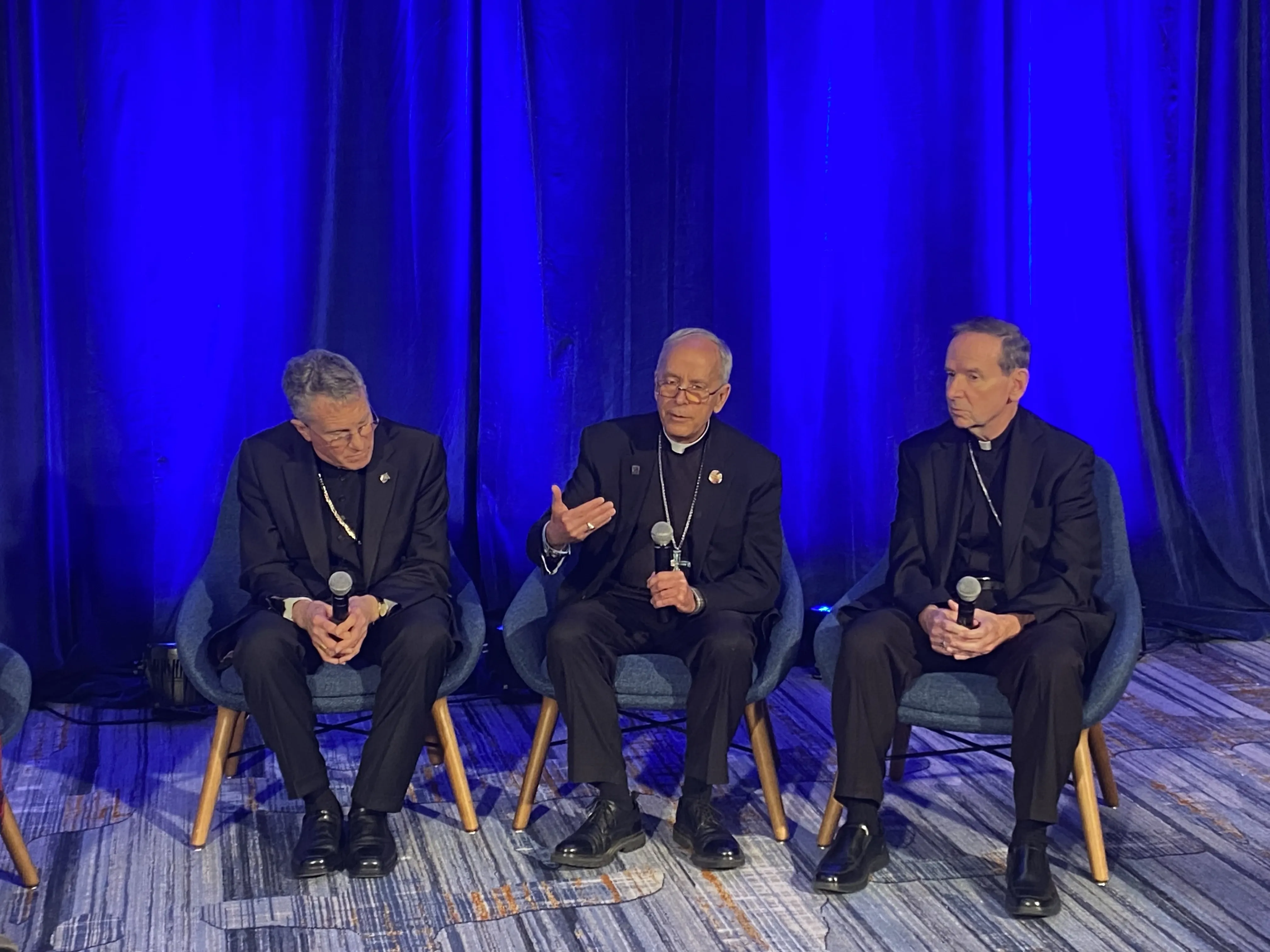He also insisted that if any kind of deportation program is carried out, that it respects basic human rights, which are not a product of having citizenship or not but are given by God, as America’s founding documents recognize.
The way in which a deportation program is executed will “be a test for our nation,” said the El Paso bishop, who added that the bishops will certainly assure undocumented immigrants “of our accompaniment with them” in the midst of whatever might be coming, because “we’re not going to run and leave them.”
In connection to ministry to migrants, Broglio added that the Church’s ability to carry out its mission of service is a matter of religious liberty.
“I think we have to insist on our ability to live according to our faith and also to practice that faith, especially as it applies to the most needy and the most marginalized of our society,” he said.
Pro-life lessons and IVF
(Story continues below)
Beyond immigration, Burbidge, who leads the Diocese of Arlington in Virginia, commented on the pro-life lessons from Election Day, which included the first three pro-life wins on state-level ballot initiatives since the 2022 overturning of Roe v. Wade.
The Virginia bishop emphasized the importance of the pro-life movement “being ahead of the game” in state-level battles by getting out messaging early and concisely.
“We will never be able, financially, to keep up with those who are fighting to legalize abortion in their states,” he said. “We have to rely on the truth that we have, on the prayers and sacrifices that we make, and also making clear the extreme positions of those who are working to legalize abortion in their states.”
And while Trump has indicated he is not open to restricting abortion at the federal level, Burbidge said he was “somewhat optimistic” that the pro-life movement would find an “open ear” to supporting initiatives that aim to support mothers, unborn children, and family life, such as child tax credits and even the USCCB’s own Walking with Moms in Need.
“Any ways that there could be a partnership in increasing those opportunities so abortion doesn’t have to be a choice is something that we’re going to advocate for with great zeal,” he said in additional comments to EWTN News.
Regarding Trump’s proposal to federally fund IVF, Burbidge echoed Seitz, noting that the bishops “will not respond to what we heard on the campaign trail” but rather to what policies are put into action.
“If it is anything that is not in support of defending life, then we will respond accordingly,” he said, adding that the bishops need to convey their teaching on IVF, which involves destroying embryonic life and conceiving life in a manner not according to God’s law, with “pastoral sensitivity,” given that infertility is “a very heavy cross.”
Moving forward
Although a second Trump term represents a particular set of challenges and opportunities, USCCB leadership emphasized that their fundamental mission in their engagement with elected officials remains the same.
“No matter what the results were on Tuesday [Nov. 5], we knew on Wednesday that something would be the same: We are one nation under God,” said Burbidge, emphasizing that the bishops are guided by the truth of the Gospel, not political partisanship.
Broglio noted that “there are winners and losers” after an election, “but the main goal is to allow the country to progress,” and emphasized the importance of widespread dialogue.
For Seitz, that includes dialogue with the new Trump administration, on areas of disagreement, but also in cases where the bishops’ priorities overlap with the president and other elected officials.
“We always look for ways in which we can collaborate with the administration, with members of Congress and the like,” Seitz said. “There will still be areas where we can do that.”








